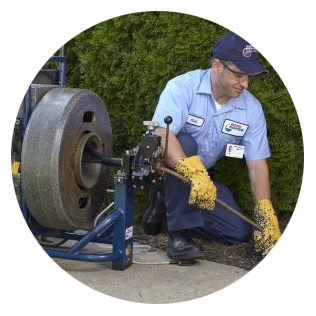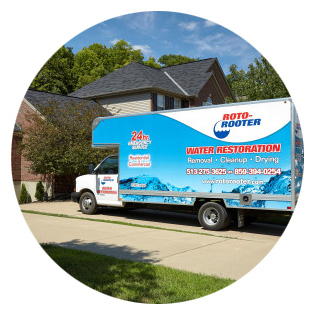
Are you tired of dealing with spotty dishes, soap scum, and dry skin? These are common signs of hard taps in your home. Understanding the answer to “How does a water softener work?” can help you solve these persistent problems.
As your trusted plumber in Dickson, TN, Roto-Rooter Plumbing & Water Cleanup will explain how these solutions create a more palatable drinking source for your home.
Understanding Hard Water and Its Effects
Hard water contains high levels of calcium and magnesium minerals, which can cause numerous household problems. These minerals build up in pipes, reduce appliance efficiency, and make it harder to clean your home.
You can identify hard H20 through these common signs:
- White residue on faucets and showerheads
- Spotty dishes and glassware after washing
- Stiff, scratchy laundry and faded clothes
- Dry, itchy skin and dull hair
- Reduced pressure from mineral buildup
- Higher energy bills from inefficient appliances
How the Process Works
So, how does a water softener work?
This device removes calcium and magnesium through a process called ion exchange. The system contains resin beads charged with sodium ions that attract and capture hardness minerals as liquid flows through the tank.
Here is a more detailed breakdown of what’s involved in the water softening process:
- A mineral tank containing resin beads: This component houses thousands of tiny resin beads that attract and trap calcium and magnesium ions while releasing sodium ions into your tap.
- A brine tank holding salt or potassium chloride: This separate tank stores and dissolves the salt solution needed to clean and recharge the resin beads during regeneration.
- A control valve to manage flow: This automated valve directs fluid through the mineral tank during normal operation and controls the backwash and regeneration cycles.
- A meter to measure usage: This device tracks your consumption and signals when regeneration is needed based on your household’s patterns.
The Regeneration Process Explained
The regeneration process keeps your machinery working effectively. When the resin beads become saturated with hardness minerals, the system flushes them with a salt solution to restore their softening capability.
To ensure optimal water treatment performance, you should maintain proper salt levels and schedule regular maintenance. Most systems regenerate automatically based on your household’s usage patterns.
Testing Your Tap Hardness
Performing a water hardness test helps determine whether you need this device in your home. To measure mineral levels accurately, you can purchase test strips from hardware stores or schedule professional testing.
Understanding your H20 quality allows you to choose the right water filtration and purification solutions for your home’s needs. You can work with a local plumber for expert testing and product recommendations.
Trust Our Plumbing Experts
Now you understand the answer to “How does a water softener work?”
At Roto-Rooter Plumbing & Water Cleanup, we specialize in water purification and maintenance. Our experts can also assist with water damage cleanup and other plumbing services. Call us at (615) 682-8288 today to discuss our solutions for your Dickson, TN, home.



